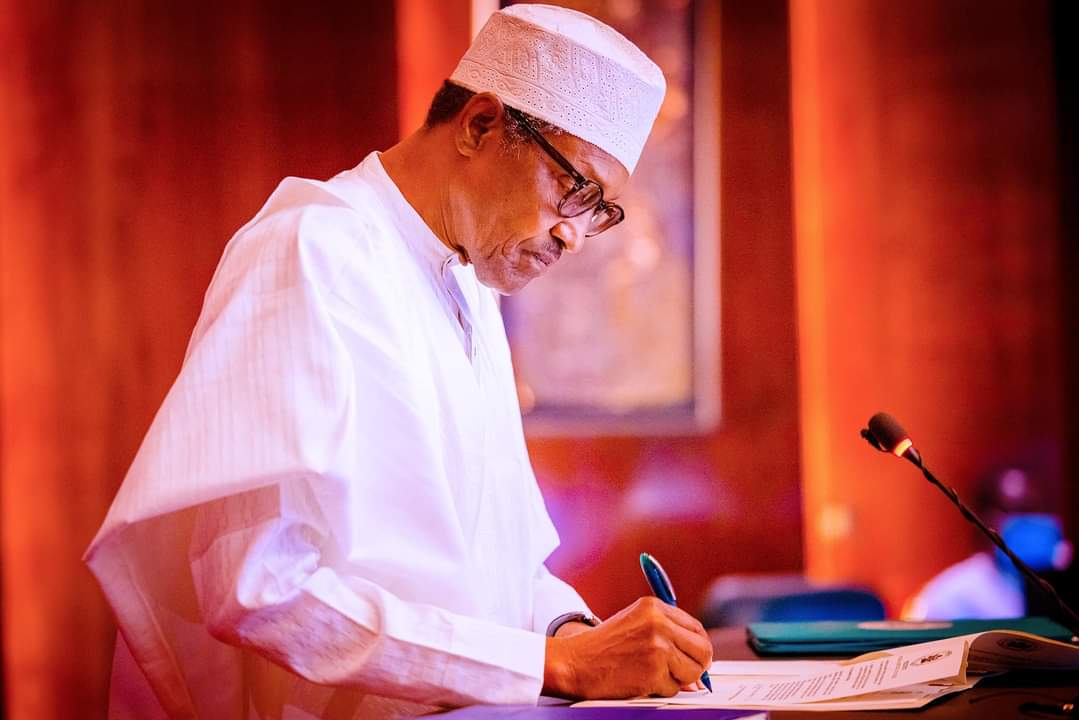Energy
Now at N4trn, fuel subsidy to cost Nigeria 10 times more than budgeted
Published
4 years agoon

The rising cost of crude oil will increase the cost of Nigeria’s gasoline subsidy by nearly ten times what it had originally budgeted, Nigeria’s President Muhammadu Buhari said in a recent letter to lawmakers.
Nigeria’s Petroleum Motor Spirit subsidy is now set to cost 4 trillion naira this year, or $9.6 billion. This compares to Nigeria’s previous projections, which called for just 443 billion naira in gasoline subsidies.
Read Also:
Even though Nigeria is a major producer of crude oil, the high price of crude oil has come with drawbacks for Africa’s largest crude oil producer. Nigeria swaps at least a portion of its crude oil for gasoline which it then sells at a loss.
Global rating agency, Fitch Ratings has recently expressed fear for Nigeria’s fiscal burden from subsidy, saying the more the boom in oil price in the global market, the more subsidy Nigeria would incur.
It said in a report that the decision of the Federal Government to reverse its plan to phase out the implicit fuel subsidies that support price controls on petroleum would reduce benefits accruing from increase in oil price.
The report said, “Higher oil prices would also boost the subsidy cost, denting the benefit of higher global oil prices to the budget.
“We forecast the 2022 general government fiscal deficit to remain broadly unchanged from 4.1 per cent of Gross Domestic Product in 2021. However, we estimate that $10 per barrel increase would narrow the fiscal deficit by 0.5 per cent of GDP.”
Nigeria imports nearly all of the gasoline it consumes. And with today’s high prices, Nigeria is selling this gasoline at a very steep loss in order to keep gasoline prices at 162.5 naira per liter (39 cents). For perspective, in 2020, Nigeria’s petroleum imports exceeded its exports by $43 billion.
The letter, dated April 6 and seen by Bloomberg, called on lawmakers to increase the amount budgeted to continue subsidizing the price of gasoline.
Nigeria is in the midst of a fuel crisis that has seen vehicles lined up at gas stations to fuel up, in part due to its lack of refinery output, and in part due to some substandard gasoline it had imported earlier this year, which contained too much methanol.
Nigeria’s President signed a law last August that would end the costly gasoline subsidies by February 2022 but later reversed this notion, instead extending them for 18 more months to stave off fuel protests.
Nigeria has just four crude oil refineries with a combined nameplate capacity of 445,000 bpd enough to meet domestic demand. But the state of disrepair of Nigeria’s refineries means it must still import 80% of all its refined products. A new 650,000 bpd refinery in Nigeria is expected to begin production in the fourth quarter of this year.
Share this:
- Click to share on X (Opens in new window) X
- Click to share on Facebook (Opens in new window) Facebook
- Click to share on WhatsApp (Opens in new window) WhatsApp
- Click to share on Pocket (Opens in new window) Pocket
- Click to share on Telegram (Opens in new window) Telegram
- Click to email a link to a friend (Opens in new window) Email
- Click to share on LinkedIn (Opens in new window) LinkedIn
You may like


Dollar & Fuel Costs: A Stinging Shoe Pair to Walk In


JUST IN: ‘Fuel Subsidy Is Gone’, President Tinubu Declares In Inaugural Speech


Fuel Subsidy Removal: World Bank Provides $800m Palliatives for Nigerians


Sanusi: Nigerians Don’t Drink Fuel, NNPC’s 66m-Litre Daily Fuel Consumption Claim Lies


Subsidy: I Pity the Next President – Sanusi


Fuel Subsidy Gulps N3.92trn as Defence, Health, Education Budgets Suffer








